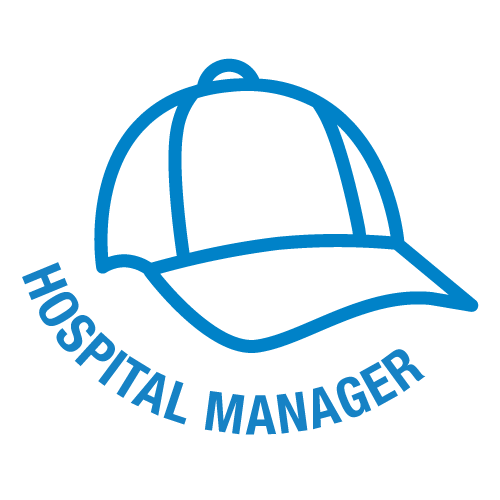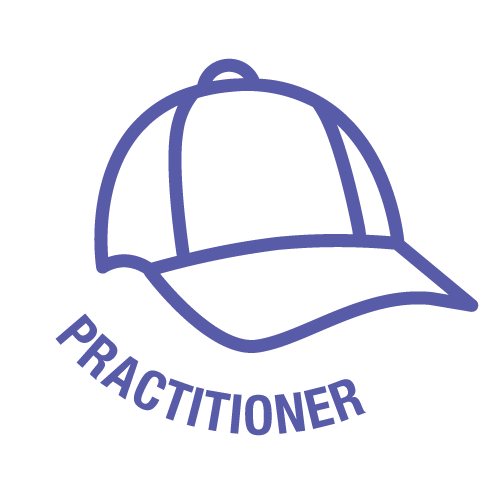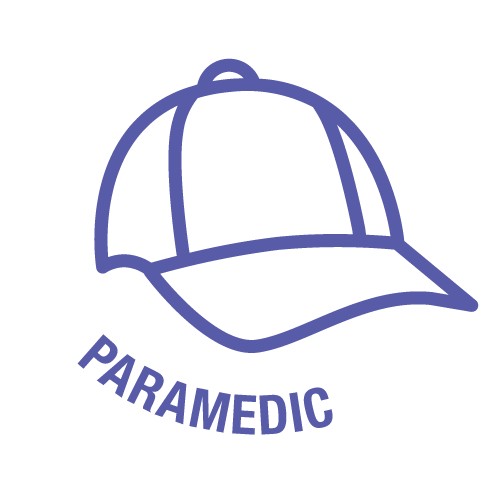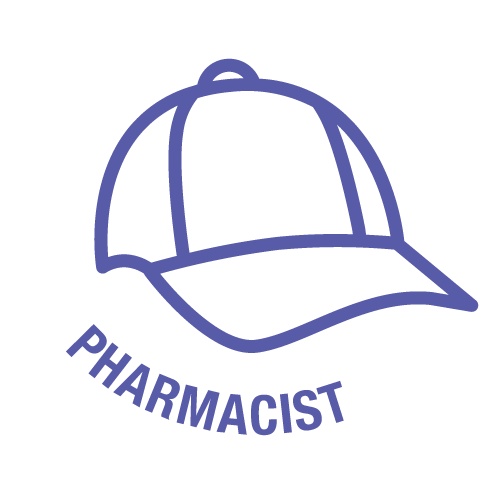Best Practice Guidelines: Hospital Patient Administration
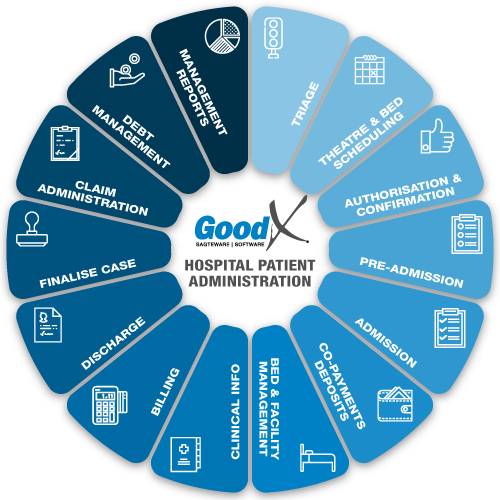
Copyright © 2019 GoodX Software. All rights reserved.
GoodX online Learning Centre
learning.goodx.co.za
2. Introduction to Critical Business Processes
2.1. Introducing roles and responsibilities in a hospital
To run a successful hospital there must be a concern with all operations of the business and not just the healthcare aspects of the hospital. Strict control must be taken to ensure the smooth operation of the hospital and that the hospital is financially viable and healthy. Appointing competent personnel will assist the hospital to ensure that all duties are performed and that the hospital is thus run effectively and accurately.
Consider the following:
- Make sure that all employees know what their roles are in the practice and what is expected of each role by documenting the roles. A lack of proper role division and work definition can result in needed tasks not being completed.
- Role division gives the practice the ability to:
- divide work optimally between personnel;
- implement a separation of duties;
- implement access control;
- avoid labour disputes due to personnel not knowing what their responsibilities are.
- This best practice guidelines book is designed to assist the practice to implement proper procedures per role so that all critical business processes are completed and can be audited with the internal controls as described in the GoodX Healthcare Management of Internal Controls book.
Roles in the hospital
 |
We suggest that the following roles be defined in the hospital. Please note that you do not need to recruit each of these roles, but one person can cover more than one of these roles, depending on the size of the hospital. When recruiting staff you can use these role descriptions to make sure that the person has all the necessary skills to make the hospital a success and that all personnel know what their responsibilities are. |
|---|
1. Hospital Manager
The basic functions that the Hospital Manager performs are:
- Supervise daily administrative operations
- Monitor expenses and suggest cost-effective alternatives
- Create quarterly and annual budgets
- Develop and implement effective policies for all operational procedures
- Prepare work schedules
- Maintain organized medical and employee records
- Monitor administrative staff’s performance
2. Practitioner
The treating practitioners are normally not employed (on the hospital payroll) directly at the hospital. The only medical practitioners employed are Nurses.
The basic functions that a practitioner working for the hospital must be able to perform, are the following:
- Patient consultations
- Physical examinations
- Diagnosis and treatment of illnesses/ailments
- Minor surgery
- Health education
- Liaising with other healthcare professionals and/or hospitals
3. Paramedic
The basic functions that the Paramedic performs are:
- Assessing patients, providing emergency treatment and making diagnoses
- Monitoring and administering medication, pain relief and intravenous infusions
- Dressing wounds/injuries
- Using specialist equipment including ventilators and defibrillators
- Providing hospital staff with patient information including condition and treatment
- Helping provide patient care in the hospital
- Communicating effectively with patients and their relatives/friends
4. Pharmacist
The basic functions that the Pharmacist performs are:
- Prepares medications by reviewing and interpreting physician orders and detecting therapeutic incompatibilities
- Dispenses medications by compounding, packaging, and labelling pharmaceuticals
- Controls medications by monitoring drug therapies and advising interventions
- Completes pharmacy operational requirements by organizing and directing technicians' workflow, verifying their preparation and labelling of pharmaceuticals and verifying order entries, charges, and inspections
- Provides pharmacological information by answering questions and requests of health care professionals and counselling patients on drug therapies
- Develops hospital staff's pharmacological knowledge by participating in clinical programs. Training pharmacy staff, students, interns, externs, residents, and health care professionals
- Complies with government drug laws by monitoring nursing unit inspections, maintaining records for controlled substances, removing outdated and damaged drugs from the pharmacy inventory, supervising the work results of support personnel, maintaining current registration, studying existing and new legislation, anticipating legislation and advising management on needed actions
- Protects patients and technicians by adhering to infection-control protocols
- Maintains safe and clean working environment by complying with procedures, rules, and regulations
- Maintains pharmacological knowledge by attending educational workshops, reviewing professional publications, establishing personal networks, participating in professional societies
- Contributes to team effort by accomplishing related results as needed
5. Receptionist
 Hospital receptionists are
professionals who are responsible for coordinating the daily administration of doctors, staff, visitors and patients at a healthcare facility.
Hospital receptionists are
professionals who are responsible for coordinating the daily administration of doctors, staff, visitors and patients at a healthcare facility.
The basic functions that the Receptionist performs are:
- Welcoming patients and visitors by greeting patients and visitors, in person or on the telephone
- Answering or referring inquiries
- Optimising patients' satisfaction, the practitioner's time, and treatment room utilisation by scheduling appointments in person or by telephone
- Keep patient appointments on schedule by notifying the practitioner of the patient's arrival
- Comfort patients by anticipating patients' anxieties, answering patients' questions and maintaining the reception area
- Ensure availability of treatment information by filing and retrieving patient records
- Maintain patient accounts by obtaining, recording, and updating personal and financial information
- Maintain business office inventory and equipment by checking stock to determine inventory level, anticipating needed supplies, placing and expediting orders for supplies, verifying receipt of supplies and scheduling equipment service and repairs.
- Help patients in distress by responding to emergencies
- Protect patients' rights by maintaining the confidentiality of personal and financial information
- Maintain operations by following policies and procedures; reporting needed changes.
- Contributes to team effort by accomplishing related results as needed
- Pre-admission of patients
- Calling for Authorisations
- Directing patient and visitors in the hospital, from reception to the correct wards or departments.
- Arranging the porter service in the hospital for the patient who gets admitted or needs directions in the hospital to specific departments.
6. Casualty Nurse
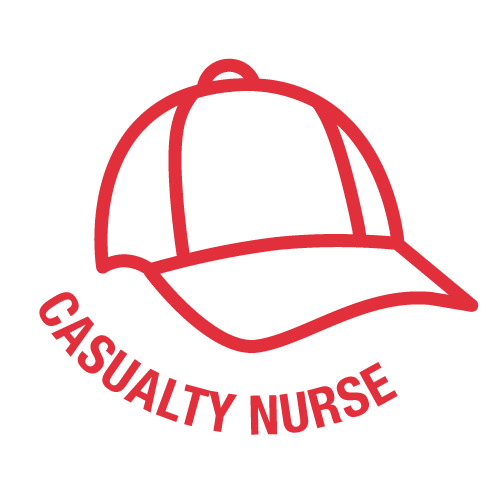 ER Nurses are
the first line of defence when responding to patient injuries, trauma or allergic reactions. They are always prepared to respond to emergencies, assist doctors in emergency medical care and ensure a high quality of nursing standards
are maintained, among other duties.
ER Nurses are
the first line of defence when responding to patient injuries, trauma or allergic reactions. They are always prepared to respond to emergencies, assist doctors in emergency medical care and ensure a high quality of nursing standards
are maintained, among other duties.
The basic functions that the Casualty Nurse performs are:
- Triage patient
- Distribute medication and treatment to patients in emergency departments
- Keep detailed records of patient vital signs and recommend treatment options to attend practitioners
- Evaluate patient health during emergency room stays and watch for signs of improvement
- Consult other departments upon patient admission into hospital
- Discharge patient from the casualty unit
- Refer all complaints from patients and doctors to sister-in-charge of the unit
- Ensure used stock is well controlled, charged or indicate on the patient charge sheet and credited appropriately
- Maintain professional conduct and standards at all times in accordance with hospital policies and procedures
- Promote and maintain good working and interpersonal relationships with management, colleagues and doctors
7. Casualty Manager
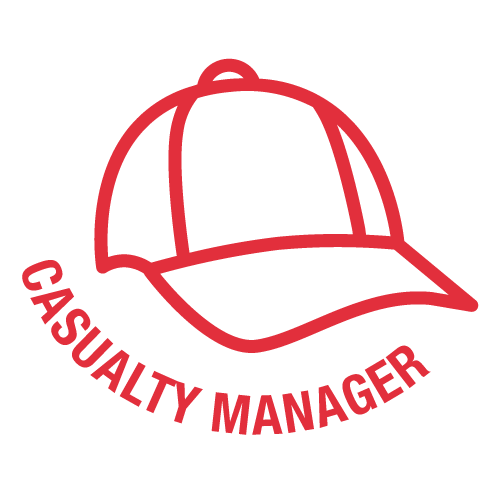 Coordinates disaster response or crisis management activities, provides disaster preparedness training, and prepares emergency plans and procedures for natural, wartime, or technological disasters or hostage situations. The primary obligation of the casualty manager, regardless of authority, is to protect and preserve the safety of citizens. The casualty manager must develop relationships with emergency response agencies to facilitate
inter-agency operations in emergencies.
Coordinates disaster response or crisis management activities, provides disaster preparedness training, and prepares emergency plans and procedures for natural, wartime, or technological disasters or hostage situations. The primary obligation of the casualty manager, regardless of authority, is to protect and preserve the safety of citizens. The casualty manager must develop relationships with emergency response agencies to facilitate
inter-agency operations in emergencies.
The basic functions that the Casualty Manager performs are:
- Manage acuities and skill mix to ensure cost-effective quality care
- Manage all costs emanating from the department
- Ensure correct billing, stock management and purchasing
- Facilitate timeous and accurate compilation of files
- Identify quality improvement opportunities and ensure appropriate strategy and Quality Improvement initiatives are developed and measured
- Investigate all negative incidents and ensure appropriate capturing on the system
- Monitor safety standards in accordance with the Machine and Occupational Safety Act.
- Report all accidents and incidents to Line Manager / Safety Representatives
- Ensure compliance with protocols, policies and Acts
- Ensure that all equipment is in working order and properly maintained
- Control of asset register
- Ensure the unit is providing safe, cost-effective quality patient care in line with the Clinical Governance strategy and evidence-based practice
- Evaluate the patient’s journey through patient experience and stakeholder input
- Evaluate nursing quality indicators and clinical outcomes
- Communicate effectively with patients regarding their care
- Promote health and well being of patients and staff
- Ensure the principles of infection prevention and all standard precautions are adhered to
- Implementing group quality initiatives
- Ensure achievement of transformation goals as set out by the Transformation Committee
- Actively participate as a member of a team to achieve goals
- Active involvement in own professional development to maintain a satisfactory level of skill and knowledge
- Keep up to date with the hospital evolving policies and procedures
- Keep abreast of current research in the applicable discipline
- Create an environment where staff are aware of the role they play in the provision of quality nursing care and their value to the organization
- Assign decision making, authority, tasks and responsibility to appropriate persons in order to maximize organisation and employee effectiveness
- Develop a talented nursing workforce
- Ensure appropriate nursing training for the delivery of quality care
- Facilitate a culture that is supportive of talent management and the initiation of required implementations
- Monitor staff attendance and/or absenteeism and ensure action is taken accordingly
- Enforce staff dress code within and on leaving the Hospital
- Facilitate effective change and conflict management
- The orientation of new staff and students
- Facilitate staff development both personal and professional
- Coaching and mentoring of staff
- Ensure professional conduct and appearance of staff
- Promote staff wellbeing
- Work effectively and cooperatively with others to establish and maintain good working relationships that are mutually beneficial
- Create and maintain a positive environment where the differences of others are recognized, understood, and valued, so that all can reach their full potential and maximize their contributions
- Develop collaborative relationships to help accomplish the work goal
- Maintain customer intimacy through building relationships with doctors, nursing staff, suppliers and building patient loyalty
- Build strategic inter-departmental relationships to help achieve business goals and departmental level within the hospitals
- Foster an effective working relationship with service providers
- Foster an effective working relationship with Public liability
8. Ward Nurse
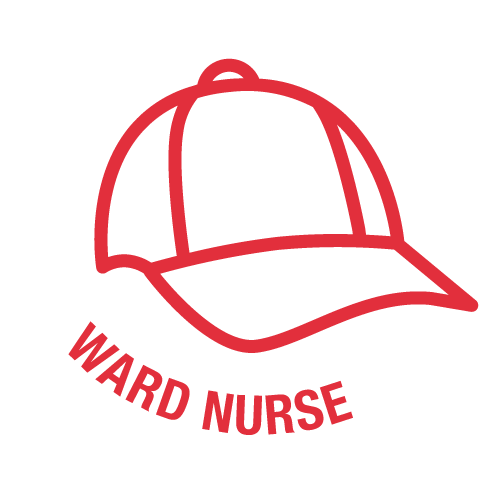
Ward nurse duties vary as per the areas of their expertise. They play a key role in promoting the wellness of patients by performing a wide range of services. A ward nurse mainly focuses on caring for and educating the patients and their family members
about early recovery and ways of prevention of diseases. Hence, nurses assess patients’ health problems and needs, develop and execute nursing care plans, and uphold medical records.
The basic functions that the Ward Nurse performs are:
- Observing and recording patients’ behaviour
- Coordinating with physicians and other healthcare professionals for creating and evaluating customized care plans
- In order to provide emotional and psychological support to the patients and their families
- Diagnosing the disease by analyzing a patient’s symptoms and taking required actions for his/her recovery
- Maintaining reports of patients’ medical histories, and monitoring changes in their condition
- Carrying out the requisite treatments and medications
- Checking the stock on a regular basis for maintaining the inventory level, and placing orders if required
- Changing the patient’s medication as indicated by their conditions and responses
- Adhering with the protocols, norms, rules and regulations in order to maintain complete medical records
- Maintaining a hygienic and safe working environment in compliance with healthcare procedures
- Conducting research for improving nursing practices and healthcare outcomes
- Providing instant care during medical emergencies, like car accidents, burns, heart attacks and strokes
- Discussing treatment with pharmacists and physicians in critical cases
- Providing necessary guidance on health maintenance and disease prevention
- Keeping an eye on each and every aspect of patient care that includes physical activity plus a proper diet
9. Ward Manager
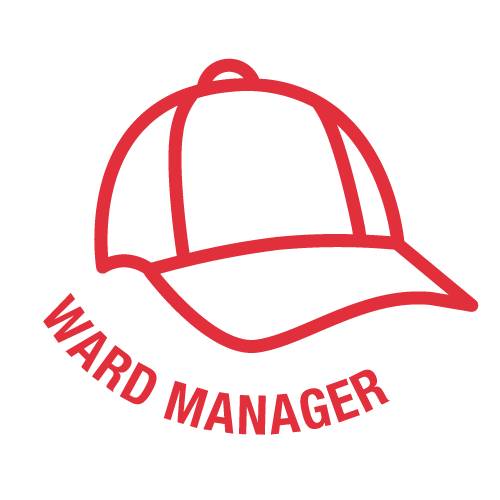 To be responsible for the management of their ward/
department, effectively leading, motivating, supervising and directing staff to ensure that time and resources are managed through effective teamwork. Oversee all aspects of operating a unit within a health care facility,
from supervising nursing staff to monitoring patient care. They need extensive clinical experience, prior administrative experience, and training in both nursing and management.
To be responsible for the management of their ward/
department, effectively leading, motivating, supervising and directing staff to ensure that time and resources are managed through effective teamwork. Oversee all aspects of operating a unit within a health care facility,
from supervising nursing staff to monitoring patient care. They need extensive clinical experience, prior administrative experience, and training in both nursing and management.
The basic functions that the Ward Manager performs are:
- Handle all supervisory duties for the unit, overseeing ward nurses, and support staff
- Set work schedules, delegate assignments, assign tasks and evaluate employee job performance, as well as disciplining employees who don't fulfil their job requirements or provide inadequate patient care
- Establish employee policies and procedures
- Mentor less experienced nurses, offering clinical and career advice
- Set goals and standards for the unit, and may hold regular staff meetings in which they give directions or discuss areas for improvement
- Establish standards of nursing care for the unit, applying evidence-based standards and health care research
- Monitor patient care to ensure it meets the facility's standards
- Review patient records to analyze the effectiveness and efficiency of the care provided by the unit
- Consult with physicians or recommend treatment options
- Review an individual patient's case, especially if it's complicated or if the patient is not responding to treatment
- Address questions or complaints brought forward by patients or their families
- Create and oversee budgets for the unit, including personnel, supplies and other expenses
- Ensure the department is well-stocked with medical supplies, including medications and equipment
- Interview and hire employees, in addition to creating training and staff development programs.
- Represent the unit's interests, consulting with senior management if the staff has questions or concerns, recommending changes and improvements, and offering the unit's opinion regarding proposed changes or decisions under consideration by the facility's
leadership staff.
10. Theatre Nurse
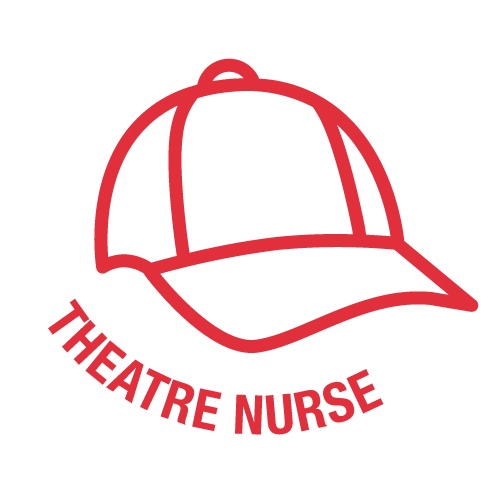 Theatre Nurses are nurses whose
primary focus is on operations and surgeries. But a theatre nurse can still have various specialisations, such as orthopaedics, ophthalmology, obstetrics, cosmetic, and other fields that require operations. The theatre nurse works closely with the
operating team. Because of this, the nature of the theatre nurse's job is very complicated. Theatre nurses play multiple roles before, during, and even after the operation. Theatre Nurses have two major roles. They can either be a scrub nurse
or a circulation nurse.
Theatre Nurses are nurses whose
primary focus is on operations and surgeries. But a theatre nurse can still have various specialisations, such as orthopaedics, ophthalmology, obstetrics, cosmetic, and other fields that require operations. The theatre nurse works closely with the
operating team. Because of this, the nature of the theatre nurse's job is very complicated. Theatre nurses play multiple roles before, during, and even after the operation. Theatre Nurses have two major roles. They can either be a scrub nurse
or a circulation nurse.
The basic functions that the Theatre Nurse performs are:
- Scrub nurses should focus on two main things. One is the patient, and the other is the equipment. The scrub nurse is expected to pass equipment to the surgeon as requested. This may seem like an easy task, but scrub nurses also pass as experts just
to complete this task. They should be very knowledgeable about every single piece of equipment, and should never mistake one for another. Though they would not be using the equipment themselves, theatre nurses should also know the uses of each
piece of equipment, which will help them respond calmly and immediately to the surgeon's request. They should also be quick to respond and should always be alert in case the surgeon asks for something. It is also the scrub nurse's responsibility
to account for all the pieces of equipment, especially after the operation. The role of the scrub nurse in operations is very big.
- A theatre nurse can also be called a circulation nurse. The main responsibility of a circulation nurse is to fetch and open packs that need to be used. Again, this may sound like an easy task, but it needs proper discipline and expertise as well.
Most of the time, the packs that need to be opened contain sensitive contents that should remain sterile and immaculate. The circulating nurse should make sure that the operating room is not contaminated in any way.
- Handle anaesthetic duties
- Responsible for the well-being of the surgical patient
- Ensure that all further treatments needed for the full recovery of the patient are carried out
- Provide post-operative consultation because they will be the one who will maintain close contact with the patient during recovery
- Can also be asked to train, teach, and supervise new staff.
11. Theatre Manager
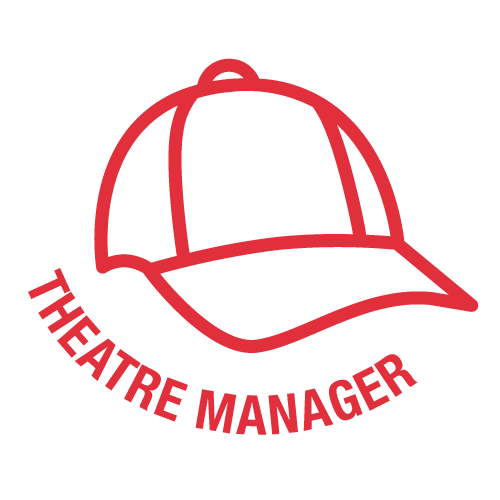 The Theatre Manager is responsible for the supervision and coordination of activities of personnel in the theatre, ensuring
adherence to procedures and schedules. Leads and directs the work of others and supervises the maintenance of equipment, supplies, staffing and training.
The Theatre Manager is responsible for the supervision and coordination of activities of personnel in the theatre, ensuring
adherence to procedures and schedules. Leads and directs the work of others and supervises the maintenance of equipment, supplies, staffing and training.
The basic functions that the Theatre Manager performs are:
- To strategically plan the delivery of patient safe clinical care provision of the theatre service, in line with business needs and responsible for the day to day organisation and management of care provision within the Operating Department while coordinating the management of the theatre team, both clinical and non-clinical
- Providing clear direction and leadership to all theatre staff, whilst supporting the initiatives of the hospital
- Responsible for development, motivation and performance of the Theatre Team, ensuring the achievement of the highest standards
- Demonstrate commitment to improving care and the patient experience
- Maintenance of professional, cost-effective theatre service including financial management and business planning
- Achievement of the labour management target, and weekly completion of staff utilisation spreadsheets
- Ensure the provision of individualised patient care
- Promote and safeguard the wellbeing and interests of all patients, employees, consultants and visitors
- Acute care hospital accepting planned and emergency surgical and medical admissions.
- Ensure correct Theatre scheduling and theatres efficiency
12. Infection & Disease Controller
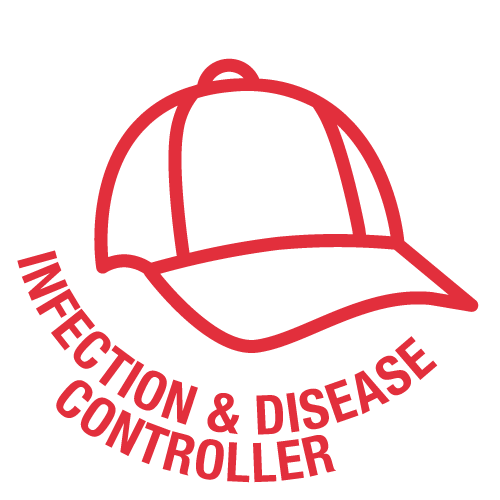 An Infection &
Disease Controller is usually a nurse who specialises in the prevention and control of infectious disease outbreaks in a hospital setting. This position requires the knowledge of epidemiology and application of public health practices in an acute
care hospital environment, with the goal of implementing effective and efficient procedures and policies to combat disease transmission among hospital patients and staff.
An Infection &
Disease Controller is usually a nurse who specialises in the prevention and control of infectious disease outbreaks in a hospital setting. This position requires the knowledge of epidemiology and application of public health practices in an acute
care hospital environment, with the goal of implementing effective and efficient procedures and policies to combat disease transmission among hospital patients and staff.
The basic functions that the Infection & Disease Controller performs are:
- Use scientific research to recommend, implement and monitor policies and procedures for hospital staff regarding sterilization, disinfection and decontamination of personnel, instruments and equipment
- Educate patients and their families, hold community or public outreach sessions regarding disease prevention and conduct education sessions for hospital employees
- Serve public health interests by implementing disease outbreak intervention procedures in affected areas of the hospital and by notifying the appropriate public health authorities in the event of an outbreak
- Collect, record and analyze hospital records and lab reports to assess the extent of a disease outbreak in order to make the appropriate recommendations for action
- Communicate with all divisions and departments of the hospital as well as with outside public health offices.
13. Billing Expert
 A hospital billing expert is a
hospital office employee responsible for coding and entering medical records, communicating with medical aids and billing patients. Hospital billing experts use software and knowledge of medical aid and billing practices to correctly translate verbal
descriptions of diagnoses and procedures into numerical codes.
A hospital billing expert is a
hospital office employee responsible for coding and entering medical records, communicating with medical aids and billing patients. Hospital billing experts use software and knowledge of medical aid and billing practices to correctly translate verbal
descriptions of diagnoses and procedures into numerical codes.
The basic functions that the Billing Expert performs are:
- Billing data and revise any errors
- Prepare itemised statements, bills, or invoices and record amounts due for items purchased or services rendered
- Review documents such as purchase orders, charge sheets, or hospital records in order to compute fees and charges due
- Perform bookkeeping work, including posting data and keeping other records concerning costs of goods and services and the shipment of goods
- Keep records of invoices and supporting documents
- Resolve discrepancies in accounting records
- Type billing documents, labels, notes
- Contact customers in order to obtain or relay account information
- Compute credit terms, discounts and rates for goods and services in order to complete billing documents.
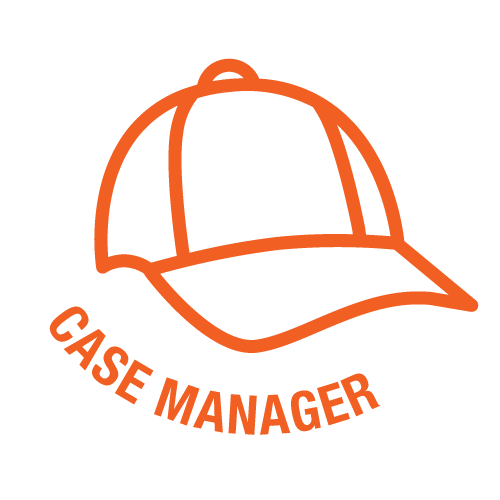 Primary responsibilities include
client advocacy, continual review and assessment of client progress, and management of all available resources needed for patient wellness. At the time of admission, hospital case managers conduct an initial assessment of patients
and their individual needs.
Primary responsibilities include
client advocacy, continual review and assessment of client progress, and management of all available resources needed for patient wellness. At the time of admission, hospital case managers conduct an initial assessment of patients
and their individual needs.
The basic functions that the Case Manager performs are:
- Maintains clients' records by reviewing case notes and logging events and progress
- Communicates clients' progress by conducting weekly interdisciplinary meetings and evaluations; disseminating results and obstacles to therapeutic team and family and identifying treatment influences
- Prepares clients' discharge by reviewing and amplifying discharge plans; coordinating discharge and post-discharge requirements; orienting and training family members; providing resources
- Improves treatment results by studying, evaluating, and re-designing processes; implementing changes; rewriting policies and procedures
- Improves financial status by analyzing results; monitoring variances; identifying trends; recommending actions to management
- Meets budget by monitoring expenses; implementing cost-saving actions
- Prepares reports by collecting, analyzing, and summarising treatment and results in data and trends; compiling statistics
- Updates job knowledge by participating in educational opportunities; reading professional publications; maintaining personal networks; participating in professional organizations
- Enhances department and organisation reputation by accepting ownership for accomplishing new and different requests; exploring opportunities to add value to job accomplishments.
- Communicate with the medical aids and update son a daily basis

15. Cashier
A cashier is someone who handles cash and card payment. Cashier responsibilities include receiving payments and issuing receipts. Reconcile the cash and card payments and communicate
back to the Financial Manager.
The basic functions that the Cashier performs are:
- Accurately and efficiently operate cash registers
- Ensure that there is sufficient cash in the cash drawer & enough paper for the card machine
- Maintain correct cash balances at cash registers
- Sort, count and wrap coins and currency
- Process payments made with cash, checks, credit cards, and debit cards
- Reconcile cash and card payments at day end
- Provide outstanding balances on accounts
- Document payment arrangements
 16. Debtors Clerk
16. Debtors Clerk
A Debtors Clerk works in the accounting department of a hospital and is in charge of keeping records of customers' accounts. Their job is to keep records on amounts owed by customers
and amounts paid. They also carry out routine bookkeeping duties including calculating interest on overdue accounts. Take phone calls and answer billing questions from residential and business customers
The basic functions that the Debtors Clerk performs are:
- Maintain strong relationships with all clients to ensure invoices are clear for payment
- Issue monthly statements to clients
- Manage the timely and effective collection of all debts and payments
- Negotiate repayment plans when necessary
- Resolve all issues raised internally and externally around outstanding invoices
- Post and allocate daily receipts to accounting systems
- Post and allocate electronic remittance advice (ERAs) as received from the medical aids/administrators
- Run reports for senior staff
- Provide accounts information to internal departments.
17. Creditors Clerk
 Performing day to day financial
transactions, including verifying, classifying, computing, posting and recording accounts receivables' data. Ensuring that all payments that are paid comply with the set standards and contain all the necessary required information. Ensure that
claims are paid timeously and correctly. Ensure that all expenses are captured and ready for payment.
Performing day to day financial
transactions, including verifying, classifying, computing, posting and recording accounts receivables' data. Ensuring that all payments that are paid comply with the set standards and contain all the necessary required information. Ensure that
claims are paid timeously and correctly. Ensure that all expenses are captured and ready for payment.
The basic functions that the Creditors Clerk performs are:
- Process accounts and incoming payments in compliance with financial policies and procedures
- Perform day to day financial transactions, including verifying, classifying, computing, posting and recording accounts receivables’ data
- Prepare bills, invoices and bank deposits
- Reconcile the accounts receivable ledger to ensure that all payments are accounted for and properly posted.
- Verify discrepancies by and resolve suppliers’ invoice issues
- Facilitate payment of invoices due by following up with the financial manager
- Generate financial statements and reports detailing accounts receivable status
- Reconcile statements with the suppliers' statement on a regular basis
18. Financial Manager
 A finance manager organizes
and manages an organization's or an individual's financial portfolio. They also prepare financial reports, oversee investments and help with cash management. A finance manager has many important and specific duties. A finance manager sometimes
acts as a controller. A controller oversees income statements, expense analytics and other financial reports. A finance manager also can act as a treasurer or a finance officer.
A finance manager organizes
and manages an organization's or an individual's financial portfolio. They also prepare financial reports, oversee investments and help with cash management. A finance manager has many important and specific duties. A finance manager sometimes
acts as a controller. A controller oversees income statements, expense analytics and other financial reports. A finance manager also can act as a treasurer or a finance officer.
The basic functions that the Financial Manager performs are:
- Purchase supplies and equipment as authorised by management
- Monitor office supply levels and reorder as necessary
- Tag and monitor fixed assets
- Pay supplier invoices in a timely manner
- Take all reasonable discounts on supplier invoices
- Pay any debt as it becomes due for payment
- Monitor debt levels and compliance with debt agreements
- Draw the VAT report bi-monthly and remit them to the government
- Ensure that receivables are collected promptly
- Record cash receipts and make bank deposits
- Conduct a monthly reconciliation of every bank account
- Conduct periodic reconciliations of all accounts to ensure their accuracy
- Maintain the petty cash fund
- Issue financial statements
- Provide information to the external accountant who creates the company’s financial statements if GoodX's accounting module is not utilised
- Assemble information for external auditors for the annual audit
- Calculate and issue financial analysis of the financial statements
- Maintain an orderly accounting filing system
- Maintain the chart of accounts
- Maintain the annual budget
- Calculate variances from the budget and report significant issues to management
- Comply with government reporting requirements on SDL, UIF and PAYE
- Process payroll in a timely manner
- Provide clerical and administrative support to management as requested
- Follow accounting policies and procedures.
19. Stock Clerk
 Responsible for receiving merchandise,
unloading or unpacking it, marking it with codes to be identified, stocking shelves, and helping the hospital to place orders. Works in stores, warehouses, stockrooms, and other storage facilities. May involve heavy lifting.
Responsible for receiving merchandise,
unloading or unpacking it, marking it with codes to be identified, stocking shelves, and helping the hospital to place orders. Works in stores, warehouses, stockrooms, and other storage facilities. May involve heavy lifting.
The basic functions that the Stock Clerk performs are:
- Order consumables stock on the appropriate days.
- Unpack replenishment stock.
- Manage all aspects of the replenishment system between ward/unit and pharmacy.
- Establish and manage a consignment stock system inward/unit according to Stock Management policy.
- Manage back order situations between ward/unit and Pharmacy.
- Maintain accurate stock records for all consumable stock.
- Manage and implement the Surgical Standardization Process in the ward/unit.
- Control all surgical and ethical stock at ward/unit level.
- Conduct regular cyclical counts to ensure accurate stock holding.
- Ensure stock rotation is done.
- Manage all aspects of cyclical and full stock take processes within the ward/unit.
- Conduct sequencing and preparation of all ward/unit Stock Books for stock take events.
- Develop a clear identification system for the stock.
- Assist nursing staff and unit manager with stock queries.
- Liaise with the billings department regarding queries on files.
- Investigate and report discrepancies to Stock Controller and Practice/Hospital Manager
- Deliver charts to the pharmacy, if needed.
- Ensure sufficient copies of necessary documentation are available in the ward.
- Assist with any ad-hoc duties assigned by the Stock Controller.
- Prevent waste and assists in preventing theft.
- Follow the FIFO principles.
- Clean the Stock cupboards once per week, in conjunction with hospital/practice cleaning services.
- Write equipment in ‘Lendâ€-book if lend out to another ward/hospital.
- Know the procedure to activate the disaster plan.
- Ensure the stockroom’s temperature is kept below 25 degrees Celsius.
- Maintain strict patient confidentiality.
- Report unsafe conditions.
- Follow infection control policies.
- Actively participate as a member of a team to achieve goals.
- Communicate effectively to assist other team players.
- Active involvement in own professional development to maintain a satisfactory level of skill and knowledge.
- Work effectively and cooperatively with others to establish and maintain good working relationships that are mutually beneficial.
- Build and maintain strategic work relationships with the Stock Controller, Ward PA, Unit Manager and nursing staff.
- Ensure effective communication with other role players in the healthcare team.
20. Stock Controller
 The principal duty of a stock
manager is to organize and monitor inventory levels to maximize efficiency. Stock Controllers must demonstrate skills, such as contract negotiation and organizational planning. This position is instrumental to the distribution of products, and many
stock controllers assist with the training of employees to ensure a smooth process. Stock controllers may schedule employee shifts as well as organize the shipment and reception of products. Manage the stock-flow process in the practice/hospital.
The principal duty of a stock
manager is to organize and monitor inventory levels to maximize efficiency. Stock Controllers must demonstrate skills, such as contract negotiation and organizational planning. This position is instrumental to the distribution of products, and many
stock controllers assist with the training of employees to ensure a smooth process. Stock controllers may schedule employee shifts as well as organize the shipment and reception of products. Manage the stock-flow process in the practice/hospital.
A stock controller can be responsible for managing storage warehouses or delivering products to other departments. Occasionally, a stock controller may be in charge of purchasing products, though the selection of inventory items is generally left to other executive-level positions.
The basic functions that the Stock Controller performs are:
- Forecast supply and demand to prevent overstocking and running out-of-stock
- Enter purchase details (suppliers information, invoices and pricing) into GoodX
- Place orders to replenish stock as needed
- Track shipments and address any delays
- Oversee the storage of products, particularly of fragile items
- Evaluate suppliers’ offers and negotiate profitable deals
- Coordinate regular stock takes and audits
- Liaise with warehouse staff and other internal teams to test products’ quality (status upon delivery and storage conditions)
- Keep inventory records updated (including daily shipments)
- Ensure purchases do not exceed the budget.
- Assist in communication of stock policies internally within the ward/unit.
- Interpret data and take action of Stock Management Reports for the ward/unit.
- Conduct assessment to ensure that all surgical and ethical stock, as well as equipment, are recorded on the patient charge sheet as per actual use.
- Maintain a safe working environment in accordance with the Health and Occupational Safety Act.
- Educate the nursing staff on stock management (through in-service training).
21. Kitchen Manager
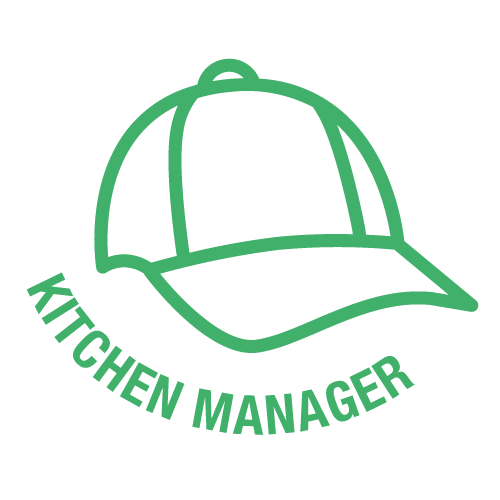 Kitchen Managers are
in charge of the overall operations for the kitchen area of the hospital. Also known as a Kitchen Supervisor, their goal is to ensure the
kitchen department runs smoothly and complies with safety regulations. Duties include ordering food, preparing menus, and monitoring staff.
Kitchen Managers are
in charge of the overall operations for the kitchen area of the hospital. Also known as a Kitchen Supervisor, their goal is to ensure the
kitchen department runs smoothly and complies with safety regulations. Duties include ordering food, preparing menus, and monitoring staff.
The basic functions that the Kitchen Manager performs are:
- Recruiting, training and supervising staff
- Agreeing and managing budgets
- Planning menus
- Ensuring compliance with licensing, hygiene and health and safety legislation/guidelines
- Promoting and marketing the business
- Overseeing stock levels
- Ordering supplies
- Producing staff rotas
- Handling customer enquiries and complaints
- Taking reservations
- Greeting and advising customers
- Problem-solving
- Preparing and presenting staffing/sales reports
- Keeping statistical and financial records
- Assessing and improving profitability
- Setting targets
- Handling administration and paperwork
- Liaising with customers, employees, suppliers, licensing authorities and sales representatives
- Making improvements to the running of the business and developing the restaurant.
22. IT Administrator
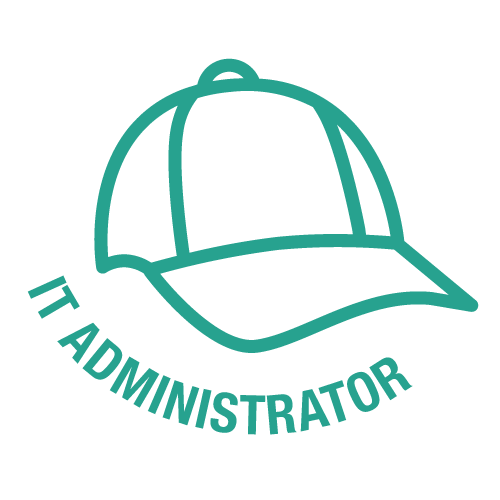 The primary role of IT Administrators
is to oversee and maintain all aspects of a company’s computer infrastructure. This includes maintaining networks, servers and security programs and systems. IT Administrators manage the upgrade and installation of new hardware and software, perform
troubleshooting to address any problems with computer systems, and assess viruses and potential threats to a company’s network. IT Administrators might also monitor the use of email, create and change passwords, make suggestions for improvements to
computer systems, backup data and perform data recovery if needed.
The primary role of IT Administrators
is to oversee and maintain all aspects of a company’s computer infrastructure. This includes maintaining networks, servers and security programs and systems. IT Administrators manage the upgrade and installation of new hardware and software, perform
troubleshooting to address any problems with computer systems, and assess viruses and potential threats to a company’s network. IT Administrators might also monitor the use of email, create and change passwords, make suggestions for improvements to
computer systems, backup data and perform data recovery if needed.
The basic functions that the IT Administrator performs are:
- Provide expertise and support during systems upgrades, installations, conversions, and file maintenance.
- Oversee systems development and enhancement and the integration of new systems with existing systems.
- Manage IT staff, including hiring, training, evaluation, guidance, discipline, and discharge.
- Develop the IT staff to meet the changing needs of users, offices, new projects and technologies; and varying staff strengths.
- Develop standard operating procedures and best practices, including providing written protocols and guidance to IT staff and to end-users.
- Keep current with the latest technologies and determine what new technology solutions and implementations will meet business and system requirements.
- Supervise and provide end-user services, including help desk and technical support services.
- Manage financial aspects of the IT Department, including purchasing, budgeting, and budget review.
- Responsible for compliance with FDIC and State banking regulations and is the point of contact for external auditors and examiners.
- Responsible for monitoring and oversight of daily, monthly, and quarterly reports from Network vendors.
- Develop and implement all IT policies and procedures, including those for security, disaster recovery, purchasing, and service provision.
- Manage servers, security solutions, network hardware and equipment.
- Manage telecommunications infrastructure and development plans, projects, policies and procedures.
- Negotiate and administer vendor, outsource, and consultant contracts and service agreements.
- Investigate, analyze, and resolve complex hardware problems on bank computer systems; perform advanced hardware repairs, maintenance, technical assistance, and support on a range of PC computers and peripherals.
- Provide troubleshooting support for escalated software and hardware problems. Coordinate vendor assistance when required.
- Install and maintain desktop computer hardware; including computers, monitors, printers, modems, internal cards, and other computer equipment.
- Respond to after-hours system problem calls. Travel to branch locations as needed.
- Provide technical assistance, support, and troubleshooting in the resolution of system communications failures and conflicts.
- Review, prioritize, and process problem reports; document the progress of projects.
- Maintain systems compliance with bank security policies and procedures.
- Provide Strategic Planning information to Senior Management.
- IT Team Leader for Disaster Recovery.
- Contributing member of the IT Steering Committee.
- Review existing and compose new policies as needed, subject to review by Senior Management.
- Perform other duties as assigned
